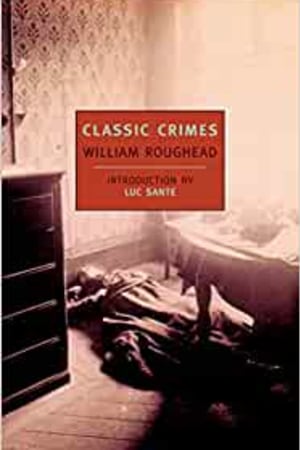True Crime
- Publisher : NYRB Classics; Main edition
- Published : 31 Aug 2000
- Pages : 576
- ISBN-10 : 0940322463
- ISBN-13 : 9780940322462
- Language : English
Classic Crimes (New York Review Books Classics)
Dorothy Sayers called William Roughead "the best showman who ever stood before the door of the chamber of horrors," and his true crime stories, written in the early 1900s, are among the glories of the genre. Displaying a meticulous command of evidence and unerring dramatic flair, Roughead brings to life some of the most notorious crimes and extraordinary trials of eighteenth- and nineteenth-century England and Scotland. Utterly engrossing, these accounts of pre-meditated mayhem and miscarried justice also cast a powerful light on the evil that human beings, and human institutions, find both tempting to contemplate and all too easy to do.
Editorial Reviews
"Modern-day true crime could not exist without the writings of Roughead. . . His write-ups of the legal proceedings he attended and cases he researched, collected in this single volume, are infused with delight and brio, as well as bursts of outrage at obvious wrongs." -Sarah Weinman, The Millions
Readers Top Reviews
Harry Eagarsally tar
The British dote on their criminals, and, at one remove, so do we Americans. The names of Burke and Hare or Madeleine Smith are as well-known to aficionados of true crime as Machine-gun Kelly or Ted Bundy. One reason was William Roughead, a writer to the Signet (Scotch lawyer) who around the turn of the last century wrote up many famous trials. This selection of 12 covers nearly two centuries of mostly Scottish mayhem, at a leisurely Edwardian pace - an average of 50 pages. At that, they are merely condensations, in some cases, of the full records, sometimes also edited by Roughead, in the Famous British Trials series, which reproduce the stenographic records of the trials along with the supporting documents. It turns out there is a serious reason for reverting back to these tales beyond the mere delectation of criminal voyeurism and of Roughead's wordy but sometimes malicious style. For an example of the latter, take this comment on the sentence given to Donald Merrett in 1928 for forgery, after he got away with - in Roughead's opinion - murdering his mother: "The convict served his time (12 months) not in some grim, black cell underneath the frowning bastard battlements of the old Calton jail, but under the modern conditions obtaining in His Majesty's new prison at Saughton, a sort of penal garden city, affording in its humane and hygienic regime the advantages of a rest-cure in a criminous nursing home, and combining agreeable punishment with amusement." Today, more likely, since Merrett was 17 when he shot his mum in the back of the head, he would never see the inside of a British lockup. The meaty historical point, though, is that British justice was wayward. Most of the 10 cases resulted in Roughead's estimation in wrong verdicts. Either the fair poisoner, like Smith, got off; or an innocent man, like Oscar Slater, spent 30 years in prison. Other critics, like the communist Claude Cockburn, writing at the same time as Roughead, have condemned British justice, usually for its class-based prejudices. Roughead does not openly condemn, and he only occasionally makes a remark referring to class; but his implicit judgments are the more persuasive for all that. In some of the Scotch trials, he relates, lawyerly or press opinion stated that such a verdict (sometimes even an indictment) would "never happen in an English court." But, as Cockburn showed, justice was not blind among the Sassenachs either. Part of the problem was, and is, that British judges more or less instruct the jury what verdict to bring in, something American judges are not allowed to do. Even if you are not concerned with miscarriages of justice in the United Kingdom, some of the events described by Roughead are eye-opening. Until far into the 19th century, Scottish courts were not allowed to adjourn once the ju...
Jim F. BaughmanJoan
The writing is somewhat archaic, but the tone, slightly amused, is perfect. Don't buy this book expecting something like a mystery novel--but do buy it if you have any interest in just how silly and incomprehensible (and amusing) people and their greedy schemes can be.
LizaJane
Written in the measured, magisterial tones of it's time, the famous writer of true crime stories recounts some of the most famous murder trials of late nineteenth and early twentieth century Britain. Criminals are usually not very smart people, and here we see them in all their fatuous self-glorification. Madeline Smith was the exception. Her composure in the dock makes the usual feminine emotionality look embarrassing.


